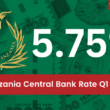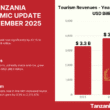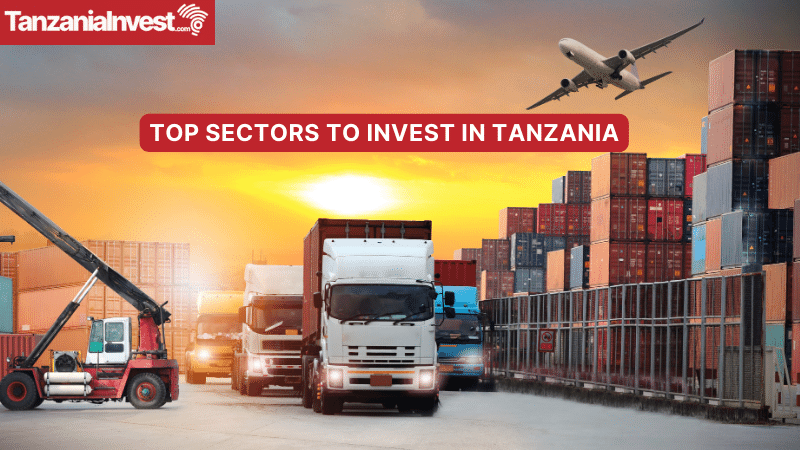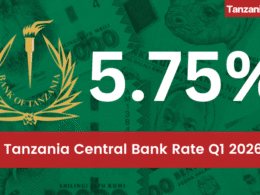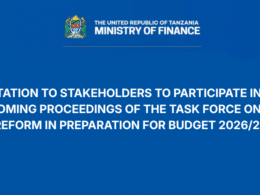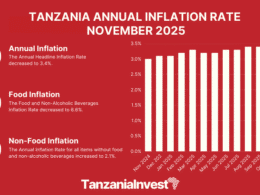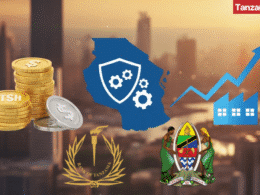In this article, we highlight the top sectors where to invest in Tanzania.
Table of Contents
Agriculture
The agriculture sector makes up about 29% of Tanzania’s GDP. It is a crucial sector of the economy, as it fills in for over half of the labor force required for production. Not only does this enhance food supply, but also raw materials that will require processing to a more relevant & stable product. These agricultural products are most times exchanged for foreign currencies via exportation. The agricultural sector takes into record both crop cultivation and animal rearing, thereby broadening the available segments for investments.
Tanzania aims to elevate to being a middle-class economy by 2025 and plans to leverage a certain percentage of this transformation into the country’s agricultural growth. To grow this sector, investment in processing agricultural products will increase the value and overall quality. Many opportunities exist in processing leather, textiles, cashews, oil seeds, cashew nuts, fruits & vegetables, meat, dairy products, etc.
Despite the numerous opportunities posed by the agricultural sector, several other factors may cause hindrances if not mitigated. These challenges include exportation and importation bans on certain goods, limited financing, a burden on the pricing of produce, etc.
Energy / Gas
Tanzania is endowed with diverse energy sources including biomass, natural gas, hydro, coal, geothermal, solar, wind, and uranium, much of which is untapped. Tanzania’s total energy installed capacity is 1,938.35 MW as of 31st December 2023.
The vast majority of the electricity is produced by The Tanzania Electric Supply Company (TANESCO).
The Tanzanian government aims to elevate its power generation capacity to 5,000 MW by 2025, with the completion of the Julius Nyerere hydropower project with a capacity of 2,100 MW and increased use of natural gas.
“Investment opportunities exist in the energy sector in Tanzania. And we have also put in place more conducive measures to support the drive,” stated Innocent Luoga, Commissioner for Electricity and Renewable Energies at the Ministry of Energy, United Republic of Tanzania.
Tanzania has proven natural gas reserves of 57 trillion cubic feet, with at least 49.5 trillion cubic feet (Tcf) of those reserves far offshore in the Indian Ocean.
The country is pursuing the Tanzania Liquefied Natural Gas Project (TLNGP), also known as the Likong’o-Mchinga Liquefied Natural Gas Project (LMLNGP), or the Tanzania LNG Project, is a planned USD 30 billion liquefied natural gas (LNG) processing plant to be located in the Indian Ocean, opposite Tanzania’s main offshore gas exploration sites.
Mining
Recent data collected by the International Trade Administration notes mining as the best prospect sector in Tanzania, owing this to the endowment of several resources such as gold, silver, tin, diamond, ruby, limestone, Tanzanite, gypsum, coal, etc. Being the fourth-largest producer of gold in Africa, it is a site of attraction to several foreign investors from the UK, USA, Canada, Netherlands, and several emerging markets (such as India, China, and South Africa).
The mining sector constitutes about 3% of Tanzania’s annual GDP, with a tremendous increase in value, making it one of the leading sectors for investment. Of the several minerals exported, gold mines accounted for over 95% of revenue attained in 2011. By 2025, Tanzania is looking forward to making the mining industry contribute at least 10% to its GDP.
Health
In December 2023, Tanzania’s President Dr. Samia Suluhu Hassan signed the Universal Health Insurance Bill into law. The Bill represents a significant step towards achieving universal health coverage, a core objective of the United Nations’ Sustainable Development Goals. By providing health insurance for all, Tanzania is setting a precedent in the region for prioritizing health equity and accessibility.
The bill’s implementation is scheduled to commence on July 1, 2024, following the publication in the Government Gazette.
Real Estate
Tanzania’s housing demand (affordable housing) is estimated at 200,000 housing units per annum with an existing housing deficit of 3,000,000 housing units.
The 2022 national census shows that Tanzania has a population of 61,741,120 people of which 59,851,347 people are in mainland Tanzania and 1,889,773 people are in Zanzibar.
This represents a +37% increase in the population in 10 years. According to the previous census of 2012, Tanzania had a population of 44,928,923, so there has been an increase of 16,812,197 people, which corresponds to a growth of +3.2% per year between 2012 and 2022.
Dar es Salaam is the most populous region of the country with 5.38 million people, followed by Mwanza with 3.69 inhabitants.
Tourism
In 2023, tourist arrivals to Tanzania increased by 24.3% to a record-breaking 1,808,205, from 1,454,920 tourists in 2022, 922,692 in 2021, and 616,491 in 2020.
Europe traditionally accounts for the largest share of arrivals, followed by Asia and the Pacific, the Americas, Africa, and the Middle East.
Tanzania’s tourism receipts reached a record-high USD 3,368.7 million in 2023, compared to USD 2,527.8 million in 2022 (USD 1,310.3 million in 2021). This increase is consistent with the rise in the number of tourist arrivals.
Opportunities exist in the construction & management of hotels and restaurants, travel agencies, tour services, infrastructural ventures, marketing organizations, training institutions, upgrade of airport terminals, and shops, etc.


